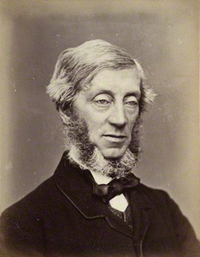William Courtenay, 11th Earl of Devon
|
The Right Honourable The Earl of Devon PC |
|
|---|---|

William Courtenay, 11th Earl of Devon, albumen print, 1870s by John Watkins, National Portrait Gallery, London
|
|
| Chancellor of the Duchy of Lancaster | |
|
In office 10 July 1866 – 26 June 1867 |
|
| Monarch | Victoria |
| Prime Minister | The Earl of Derby |
| Preceded by | George Goschen |
| Succeeded by | John Wilson-Patten |
| President of the Poor Law Board | |
|
In office 21 May 1867 – 1 December 1868 |
|
| Monarch | Victoria |
| Prime Minister |
The Earl of Derby Benjamin Disraeli |
| Preceded by | Gathorne Hardy |
| Succeeded by | George Goschen |
| Personal details | |
| Born |
14 April 1807 London, England |
| Died | 18 November 1888 (aged 81) Powderham Castle, Devon, England |
| Nationality | British |
| Political party | Conservative |
| Alma mater | Christ Church, Oxford |
| Occupation | Politician |
William Reginald Courtenay, 11th Earl of Devon PC (14 April 1807 – 18 November 1888), styled Lord Courtenay between 1835 and 1859, was a British politician who served as Chancellor of the Duchy of Lancaster from 1866 to 1867 and as President of the Poor Law Board from 1867 to 1868.
Devon was the eldest son of William Courtenay, 10th Earl of Devon and his first wife Harriet Leslie Pepys, daughter of Sir Lucas Pepys, 1st Baronet. He was educated at Westminster School and at Christ Church, Oxford, and was called to the Bar, Lincoln's Inn, in 1832.
In 1841 Devon was elected to Parliament for South Devon as a Tory. However, when the Tories split over the Corn Laws in 1846, he joined the Peelites. In 1849 Devon was appointed poor-law inspector and retired from the House of Commons. He then served as secretary to the Poor Law Board from 1850 to 1859. The latter year he succeeded his father and took his seat in the House of Lords.
He had returned to the Conservative Party (the official name of the Tory Party since the 1850s) before his succession, and when the party came to power in 1866 under the Earl of Derby, Devon was appointed Chancellor of the Duchy of Lancaster (although without a seat in the cabinet) and admitted to the Privy Council. He remained in this post until May the following year, when he became President of the Poor Law Board. However, in contrast to his predecessor in the post, Gathorne Hardy, he was not included in the cabinet this time either. Devon continued as President of the Poor Law Board until the Conservatives lost power in December 1868. After this he stopped taking an active part in politics.
...
Wikipedia
